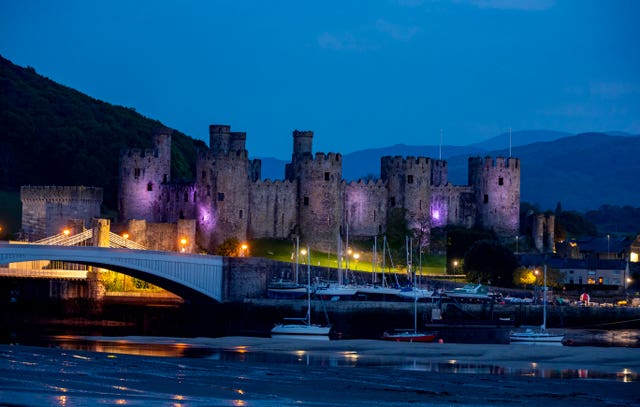The First Minister has again defended the controversial 20mph speed limit on residential roads across Wales as a petition against the rollout has been signed by more than 430,000 people.
Earlier this month, Wales became the first country in the UK to drop the default speed limit from 30mph to 20mph for restricted roads.
Mark Drakeford told the Senedd the Welsh Government’s priority was road safety and saving lives.
“At the heart of the case for moving to 20mph speed limits as a default in built-up residential areas is road safety,” he told the Senedd.
“This is a measure that will save lives and that is the basis on which we will continue to defend a measure which only last week the leading academic journal in this field said was the most significant public health measure to have been attempted in the UK for nearly 20 years.”

Andrew RT Davies, leader of the Welsh Conservatives in the Senedd, said 430,000 people had signed a Senedd petition against the 20mph policy, while just 3,000 had signed an alternative in favour.
“I don’t disparage anyone who signs a petition whether it has several hundred thousand or a few thousand, but the deputy climate change minister said on Friday night in a tweet that the 440,000 signatures to that petition were anti-road safety. Do you agree with him?,” Mr Davies asked the First Minister.
Mr Drakeford replied: “I think that all petitions should be taken seriously and that is exactly how the different petitions in relation to the 20mph zones will be viewed by this Government.
“It is through the Senedd and the petitions committee to respond.”
Mr Davies again told Mr Drakeford that the deputy climate change minister, Lee Waters, had called people who had signed the petition as “anti-road safety”.
“It’s not against road safety – it’s actually highlighting people’s genuine concerns about the way this policy has been implemented and their concerns about how it will unfold in their communities,” he said.
“I take it from the points that you’ve made that you don’t regard this petition as anti-road safety and you look at it as a genuine means for people to express themselves and express the concerns they’ve had.
“One thing that is highlighted again by interacting with people who have concerns over the proposals that the Welsh Government has implemented is will this affect other national speed limits in this country?
“So can you confirm that there are no plans from the Welsh Government to adjust any of the other national speed limits here in Wales before the next Senedd elections in 2026.”
Mr Drakeford replied: “So let me make this absolutely clear to people who may have been misled by information that purports to inform them about plans in Wales but does no such thing.
“We’re very used in Wales on a single journey moving from a speed limit that might be 40mph, 50mph, 60mph or 70mph.
“None of those are changed by this policy and there are no plans to do so.
“This is a policy designed to make a default position of 30mph of 20mph on roads which serve built up residential areas with scope for local authorities to retain 30mph where they believe that that is the right thing to do.”

The Welsh Government has said that cutting the speed limit would protect lives and save the NHS in Wales £92 million a year.
It is predicting the change would save up to 100 lives and 20,000 casualties in the first decade.
Not all 30mph roads will see their speed limits reduced as councils have the power to exempt certain roads from the scheme.
The project is costing around £33 million to implement and has proven controversial, with reports of the new 20mph signs being defaced in areas including Conwy, Gwynedd, Newport, Torfaen, Wrexham and Flintshire.
The Welsh Conservatives have opposed the scheme and cited Welsh Government documents that estimate the cost to the Welsh economy of increased journey times from lower average vehicle speeds at anywhere between £2.7 billion and £8.9 billion.




Comments: Our rules
We want our comments to be a lively and valuable part of our community - a place where readers can debate and engage with the most important local issues. The ability to comment on our stories is a privilege, not a right, however, and that privilege may be withdrawn if it is abused or misused.
Please report any comments that break our rules.
Read the rules hereLast Updated:
Report this comment Cancel